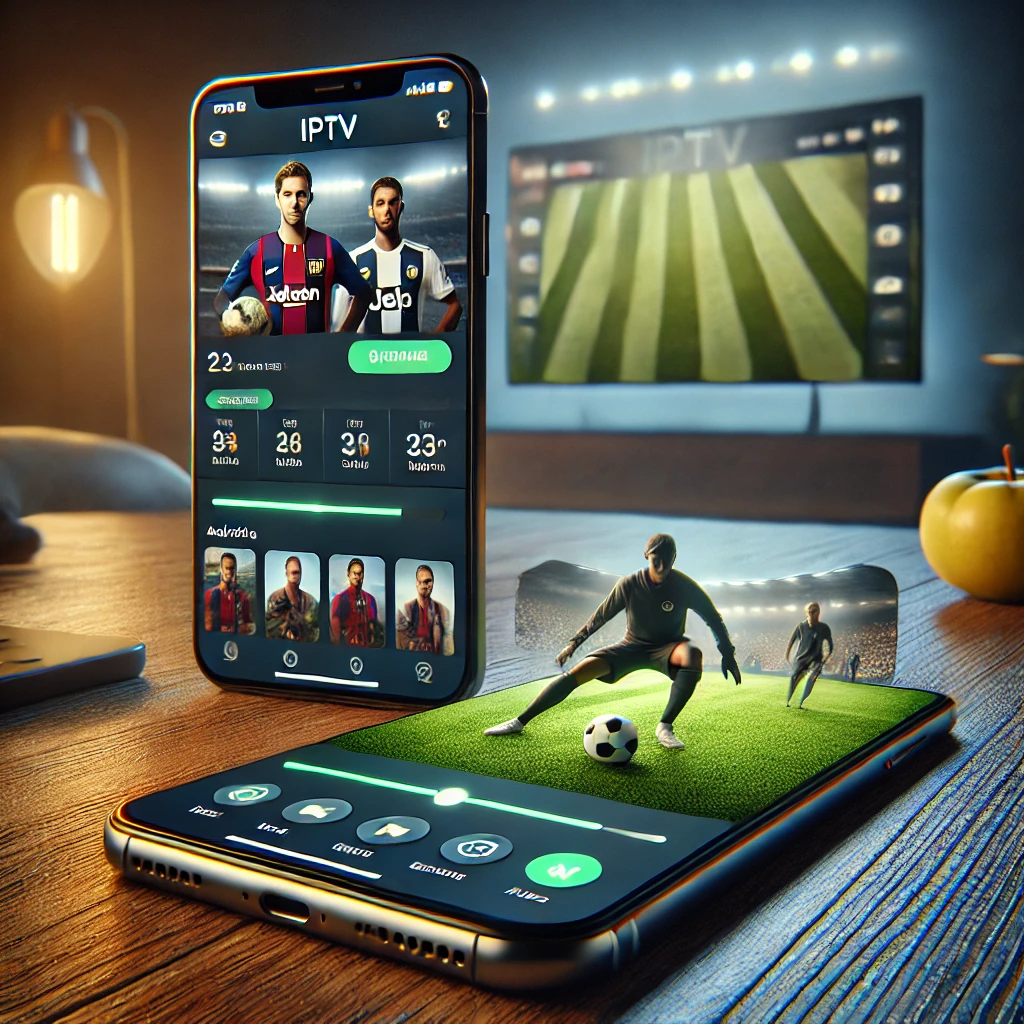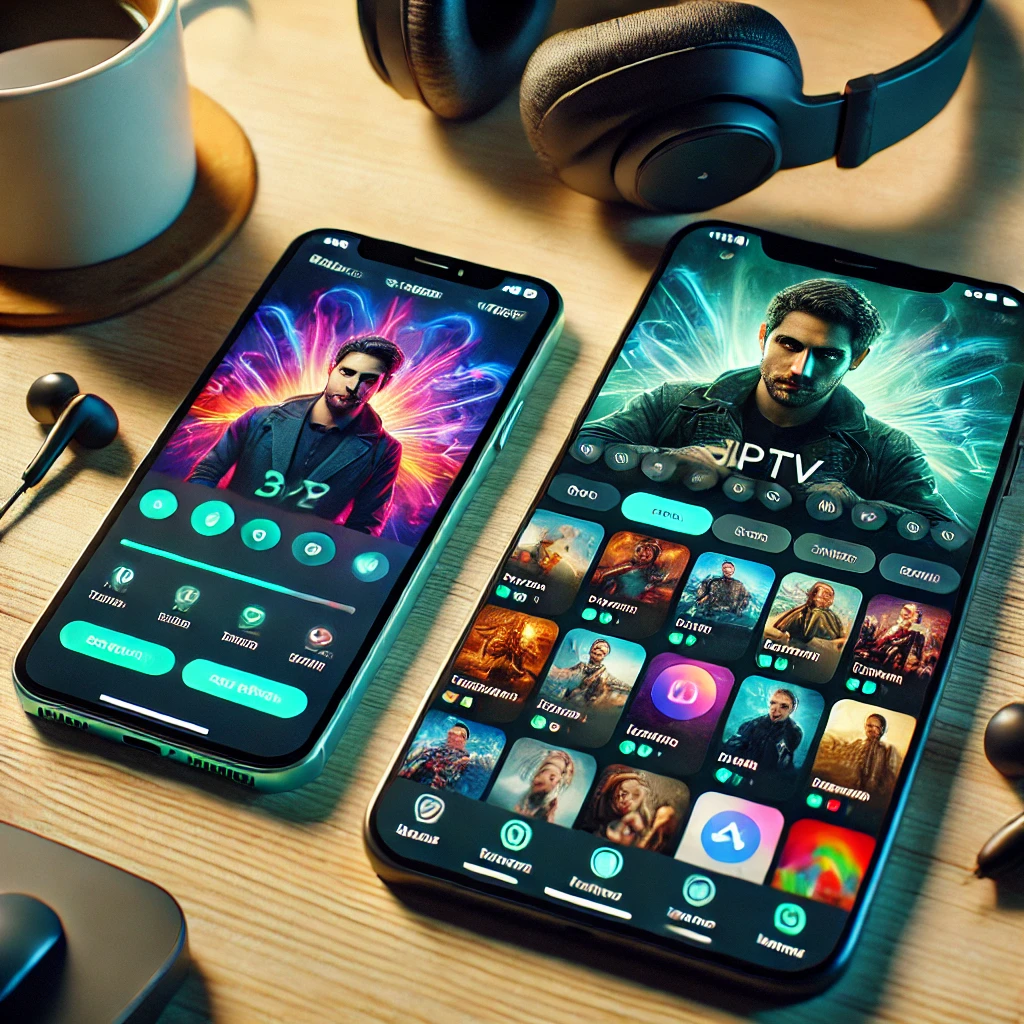iPhone vs Android: The Best Choice for IPTV Streaming
Introduction
IPTV (Internet Protocol Television) has quickly become one of the most popular ways to stream live TV, movies, and shows over the internet. Whether you’re watching live sports, premium channels, or on-demand content, having the right device can make or break your viewing experience. Two of the most common devices for IPTV streaming are iPhones and Android smartphones. But which is better?
In this article, we’ll break down the key differences between iPhone and Android for IPTV streaming, covering performance, app availability, customization, ease of use, and overall value. We’ll also include a comparison table and address frequently asked questions to help you make an informed choice.
iPhone vs Android for IPTV Streaming: A Breakdown
1. Performance and Hardware
iPhone:
Apple’s iPhones are known for their high-end hardware and optimized performance. With Apple’s proprietary chips like the A15, A16 Bionic, and beyond, iPhones handle resource-intensive IPTV apps smoothly. Streaming in 4K or Full HD is rarely an issue, and Apple’s Retina display offers vibrant colors and sharp resolution, which enhances the viewing experience.
Android:
Android phones vary greatly depending on the brand and price range. Flagship Android devices from brands like Samsung (Galaxy S series), Google (Pixel), and OnePlus also offer powerful chipsets and AMOLED displays that rival the iPhone. However, lower-end Android devices may struggle with high-bitrate IPTV streams, leading to occasional buffering or dropped frames.
2. App Availability and Compatibility
iPhone:
The Apple App Store provides a range of IPTV apps such as IPTV Smarters, GSE Smart IPTV, and Flex IPTV. However, Apple’s strict app guidelines mean some IPTV apps, especially those related to unofficial or third-party content, may not be available.
Android:
Android’s Google Play Store offers an even wider variety of IPTV apps, including Perfect Player, TiviMate, and OTT Navigator. Moreover, Android allows sideloading APK files, giving users access to third-party or modified IPTV apps not found on the Play Store, offering more flexibility.
3. Ease of Use
iPhone:
Apple focuses on a user-friendly ecosystem. iOS is simple, intuitive, and designed to work seamlessly across all Apple devices. IPTV apps on iOS are easy to set up, but may offer fewer customization options compared to Android.
Android:
While Android may seem slightly more complex to beginners, it offers more control over IPTV app settings, customization of interfaces, and the ability to tweak streaming configurations. Power users may prefer Android for its depth of settings and personalization.
4. Casting and Multi-Screen Options
iPhone:
iPhones work well with Apple TV and AirPlay-enabled devices. However, compatibility with Chromecast or other non-Apple devices might require additional apps or steps.
Android:
Most Android devices come with built-in Chromecast functionality, making it easy to cast IPTV streams directly to smart TVs, Chromecast dongles, or Android TV boxes. This gives Android users more flexibility with third-party streaming hardware.
5. Battery Life and Heat Management
iPhone:
Apple’s iOS manages power consumption efficiently. iPhones tend to offer excellent battery life even during extended IPTV streaming sessions. Heat management is also optimized, reducing the chance of overheating during long streams.
Android:
Premium Android devices also handle power consumption well, but battery life varies greatly across brands and models. Budget Android phones may heat up or drain faster when streaming IPTV content continuously.
6. Price and Value
iPhone:
iPhones are generally more expensive, but you get a premium build, strong ecosystem, and long-term software support. If you’re invested in Apple services (Apple TV+, iCloud, AirPlay), this could justify the higher price.
Android:
Android offers options at every price point, from budget to flagship. If you’re looking for affordability and flexibility, Android is often the go-to choice. You can easily find powerful Android devices suited for IPTV streaming at a lower cost compared to iPhones.


Comparison Table: iPhone vs Android for IPTV Streaming
| Feature | iPhone | Android |
|---|---|---|
| Performance | Consistent, high-end performance | Varies by model, flagships are excellent |
| App Availability | Limited by App Store restrictions | More variety, supports APK sideloading |
| Ease of Use | Simple, beginner-friendly | Customizable, more control for power users |
| Casting Options | Best with AirPlay, limited Chromecast support | Seamless Chromecast & Android TV casting |
| Battery Life | Optimized for long sessions | Varies, flagships are strong, budget may suffer |
| Price Range | Premium pricing | Wide range from budget to premium |
| Customization | Limited to iOS settings | High, supports custom players and tweaks |
| Software Support | 5+ years of updates | 2-4 years typically (depending on brand) |
Which One Should You Choose?
-
Go for iPhone if you want a polished, secure, and consistent IPTV streaming experience. Ideal for users already in the Apple ecosystem.
-
Choose Android if you value customization, broader app access, and better compatibility with a variety of streaming hardware at different price points.
Ultimately, both platforms are excellent for IPTV streaming, but your choice will depend on your preferences, budget, and streaming habits.
FAQs
1. Can I watch IPTV on both iPhone and Android?
Yes, IPTV apps are available on both platforms. However, Android may offer a wider selection due to its support for sideloading APK files.
2. Is Android better for IPTV than iPhone?
Android is more flexible and offers more app choices, especially for third-party or unofficial IPTV apps. However, iPhone offers a smoother and more optimized experience for mainstream apps.
3. Can I use Chromecast with iPhone for IPTV?
Yes, but it may require additional apps or workarounds. Android offers native Chromecast support, making it easier to cast directly.
4. What’s the best IPTV app for iPhone?
Popular choices include IPTV Smarters, GSE Smart IPTV, and Flex IPTV, depending on your needs.
5. What’s the best IPTV app for Android?
TiviMate, Perfect Player, and OTT Navigator are highly rated options for Android users.
6. Does IPTV drain battery faster?
Streaming in general, including IPTV, can consume significant battery power. Both iPhones and Androids handle this well, but budget Android devices may drain faster.
Conclusion
Both iPhone and Android have their strengths when it comes to IPTV streaming. If you’re all about a seamless experience with high reliability, the iPhone is a solid choice. If you’re after customization, variety, and affordability, Android takes the lead. Evaluate what matters most to you — whether it’s ease of use, flexibility, or price — to make the best choice for your IPTV streaming setup.

